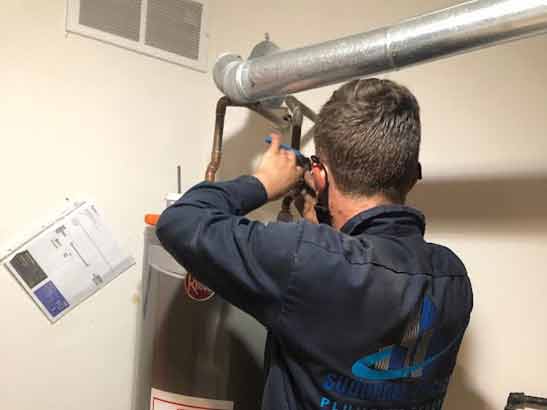
Replacing a water heater can be a daunting task, especially if you have never done it before. However, with the right expert tips and guidance, you can ensure a smooth and hassle-free water heater replacement process in Hinsdale, IL. This article aims to provide you with essential tips and insights to make your water heater replacement project a success.
1. Hire a Professional Plumber
When it comes to replacing a water heater, it is highly recommended to hire a professional plumber. They have the necessary expertise, experience, and tools to handle the installation safely and efficiently. A licensed plumber will ensure that the new water heater is installed correctly, minimizing the risk of leaks, malfunctions, and potential damage to your property.
2. Choose the Right Water Heater
Prior to purchasing a new water heater, it is vital to consider your specific needs and requirements. There are various types of water heaters available, including tankless, electric, and gas-powered models. Each type has its own advantages and drawbacks, so it’s important to research and select the one that best suits your household’s hot water demands and energy efficiency goals.
3. Properly Size the Water Heater
It’s crucial to choose a water heater that is appropriately sized for your household’s hot water demands. A water heater that is too small may struggle to meet your hot water needs, leading to insufficient supply and inconvenience. On the other hand, an oversized water heater may result in energy wastage and unnecessarily high utility bills. Consult with a professional plumber to determine the right size of water heater for your home.
4. Consider Energy Efficiency
Energy-efficient water heaters can help you save on your utility bills and reduce your environmental impact. Look for models that are Energy Star certified, as they meet strict energy efficiency standards. Tankless water heaters are known for their energy efficiency as they heat water on demand, eliminating standby energy losses associated with traditional tank-style heaters.
5. Plan for the Replacement Process
Before the plumber arrives, make sure to plan the logistics of the water heater replacement process. Clear the area around the current water heater to provide ample space for removal and installation. If necessary, drain the old water heater before the plumber’s arrival, following the manufacturer’s instructions. Additionally, ensure that the water heater location complies with local building codes and safety regulations.
6. Prepare the Utilities
Inform the plumber about the location of your existing water, gas, and electrical lines. This will help them assess the feasibility of the replacement and make any necessary adjustments. If required, a professional plumber will disconnect the utilities safely and reconnect them once the new water heater is installed. It is crucial to hire a licensed plumber to carry out these tasks to ensure safety and compliance with local codes.
7. Remove the Old Water Heater
Once the utilities are disconnected and the area is prepped, the plumber will remove the old water heater. They will carefully disconnect the water, gas, and electrical connections and safely remove the unit from your property. Proper disposal of the old water heater is essential, and a professional plumber will handle this responsibly, adhering to environmental regulations.
8. Install the New Water Heater
After removing the old water heater, the plumber will proceed with installing the new unit. They will make the necessary connections, ensuring that everything is properly sealed and supported. If required, they will also adjust the gas or electrical connections to accommodate the new water heater. Throughout the installation process, the plumber will adhere to safety protocols and local building codes.
9. Test and Verify
Once the installation is complete, the plumber will conduct thorough testing to ensure that the new water heater is functioning correctly. They will inspect for leaks, verify that hot water is reaching all fixtures, and check the functionality of safety features, such as pressure relief valves. This step is crucial in ensuring the longevity and efficiency of your new water heater.
10. Maintain Your Water Heater
To get the best performance and longevity from your new water heater, it is important to prioritize regular maintenance. Follow the manufacturer’s guidelines for flushing the tank, checking the anode rod, and scheduling professional maintenance visits. Routine maintenance will help prevent potential issues, extend the lifespan of your water heater, and ensure optimal energy efficiency.
Conclusion
When it comes to water heater replacement in Hinsdale, IL, following these expert tips will ensure a smooth and hassle-free process. Hiring a professional plumber, choosing the right water heater, properly sizing it, considering energy efficiency, and planning ahead will all contribute to a successful replacement project. Remember to maintain your new water heater regularly to maximize its performance and longevity. By taking these proactive measures, you can enjoy a reliable and efficient supply of hot water for years to come.
